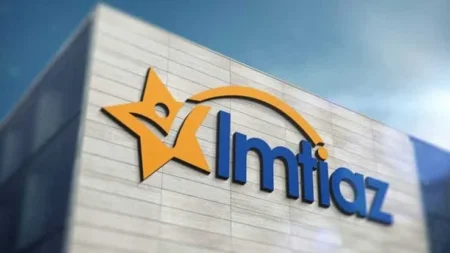ISLAMABAD: The Oil and Gas Regulatory Authority (Ogra) has been directed by the Ministry of Energy to complete the framework that would give the oil industry control over setting petroleum pricing.
The ministry instructed the chairman of Ogra to call a meeting today (Thursday) to go over the analysis, ramifications, and next steps for deregulating petroleum products. The ministry sent out the letter on Wednesday.
The letter cited Prime Minister Shehbaz Sharif’s order giving oil marketing firms pricing authority; nonetheless, it is noteworthy that the meeting’s two primary players, dealers and OMCs, have not been invited.
Presently, four of the eight petroleum fuels used in the nation are deregulated: furnace oil, high-octane, jet fuel for aircraft, and air force fuels. Regulated goods include gasoline, light diesel, and high-speed diesel.
For many years, the Oil Companies Advisory Committee (OCAC) has pushed for the gradual deregulation of the petroleum fuel industry, beginning with kerosene and LDO. The government said in August 2022 that the oil business would have unrestricted control over the pricing of petroleum products, with the deregulation process going into effect on November 1st of that same year.
Oil marketing firms are in favor of deregulating the remaining fuels, while dealers—including owners of gas stations—strongly oppose the idea, claiming that deregulation will give OMC authority over their commissions.
At the moment, dealers make about Rs8.70 per litre, while OMCs profit a margin of Rs7.87 for both gasoline and diesel.
In response to the most recent federal budget and pressure from dealers and OMCs to boost their margins, the energy ministry
Industry analyst and former senior executive of a multinational OMC Abid Ibrahim told Dawn that the government has been confused on the issue for some time now.
“Deregulation entails the absence of a predetermined method or percentage for determining margins for dealers and OMCs. Each business must be allowed to pass on its import pricing and have an independent IFEM or freight margin, according to Mr. Ibrahim.
He continued by saying that one effect of deregulation may be pricing variations for gasoline and diesel between firms’ stations and in different regions of the nation. “On the plus side, a lot of businesses would put money into quality and customer service, drawing in clients who are prepared to pay extra for superior fuel,” he said. In the interim, a few
Published in Bloom Pakistan, July 25th, 2024
